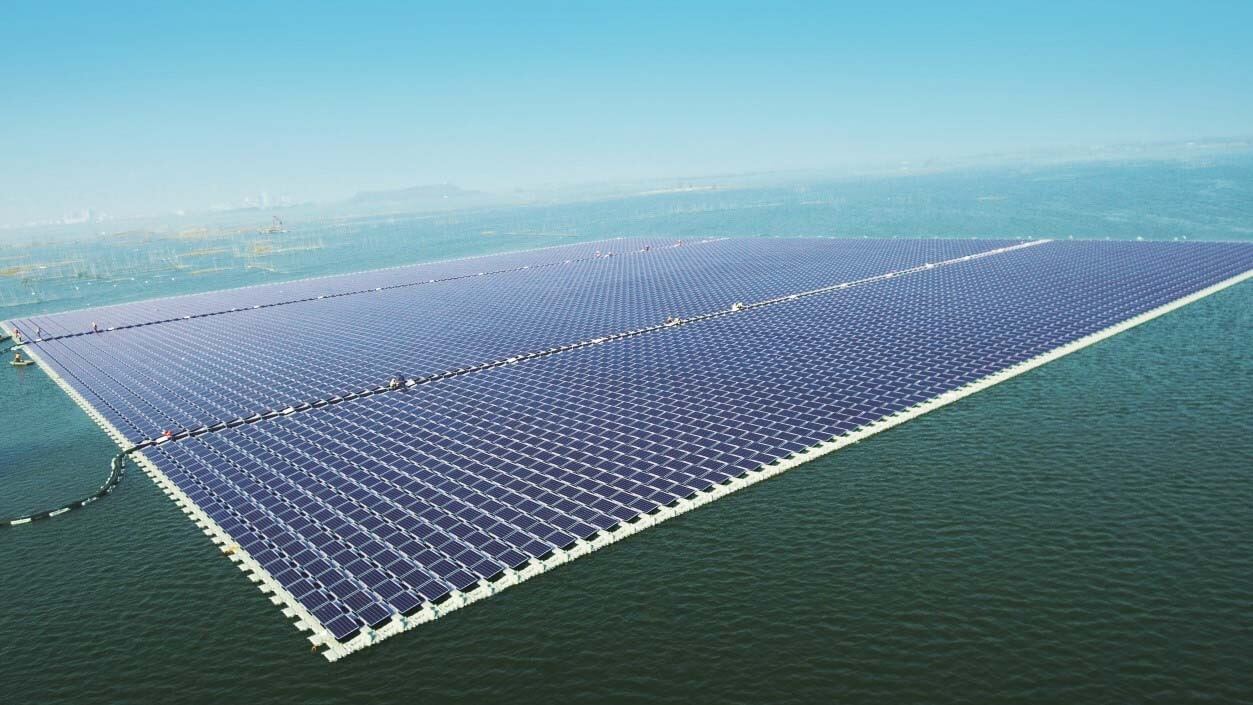
Silicon panels are becoming cheaper and more efficient day-by-day. According to experts, if photovoltaic panels are placed on reservoirs and
other water bodies, they offer even greater efficiency as well as a plethora of other benefits.
“Floatovoltaics” are photovoltaic solar power systems created for floating on reservoirs, dams, and other water bodies. Floating solar farms can generate huge amounts of electricity without using valuable land or real estate. The installation costs of floating photovoltaic panels are less than land-based photovoltaic panels. Also, research showed that the power production of floating solar panels is greater by up to 10% due to the cooling effect of water.
The installation of a floatovoltaic system has many advantages, including improved energy conversion, improved water quality, reduced evaporation, reduced panel soiling, and reduced civilian infrastructure. The advantages of the Floatovoltaics system are discussed below.
The photovoltaic system performance depends on various factors. Its reliance on temperature is the biggest issue. Photovoltaic modules lose their effectiveness with increasing panel temperature. Floating photovoltaic systems are designed with a cooling system to take advantage of the water it floats in, using it as a natural heat sink. This makes them more efficient than equivalent systems mounted on the ground.
Photovoltaic systems preserve water for the next generation as well as saving productive land. Where water bodies are exposed to the sun, photosynthesis allows the growth of organic matter, including algae. These algae are generally not desirable as they can obstruct pumping and filtration systems, requiring costly chemical treatment to control the problem. The installation of floating photovoltaic panels shades the water and reduces photosynthesis. This reduces formation of algal blooms and reduces chemical and operational costs.
A significant benefit for countries where water resources are limited, Floatovoltaics reduce water evaporation from the water body as the reservoir’s effective surface area is reduced. The floating solar panels can reduce water evaporation by up to 33% on natural lakes and ponds, and by up to 50% on man-made facilities.
As the solar panels are located on the surface of the water, further away from sources of dust and dirt, the installation reduces soiling. Particularly in dry and dusty areas, the distance from the ground prevents the capture of dust and dirt, reducing the need for surface cleaning. Furthermore, on such installations an abundant amount of water to clean the surface of the panels is never too far away.
Floating systems do not require thousands of metal frames to be fixed to the ground, meaning that a panel array can be assembled more rapidly. In addition, the decommissioning of a floating system is much simpler and less expensive.